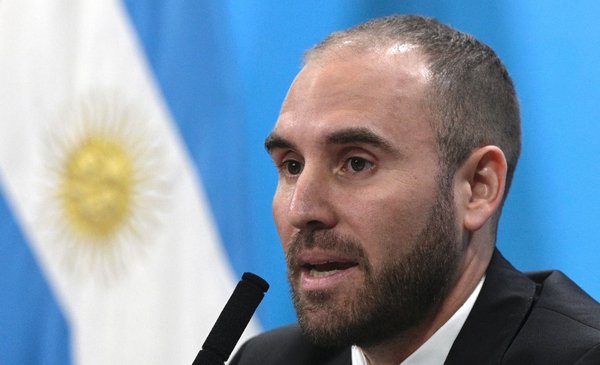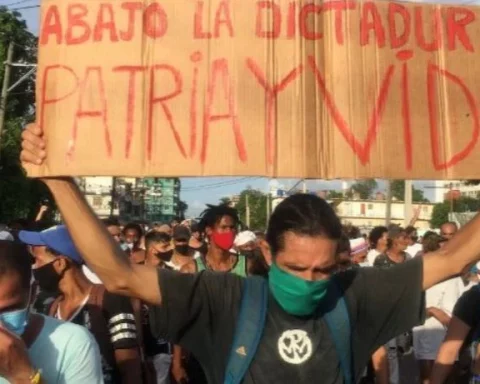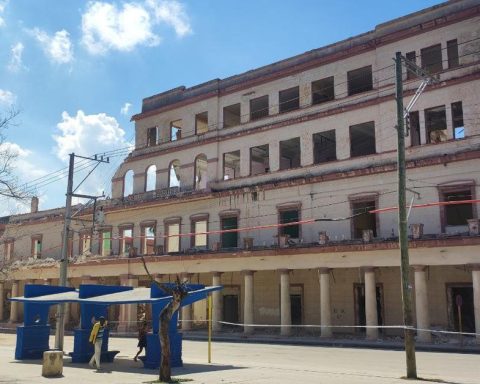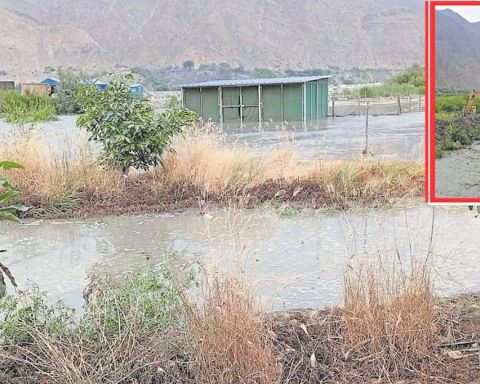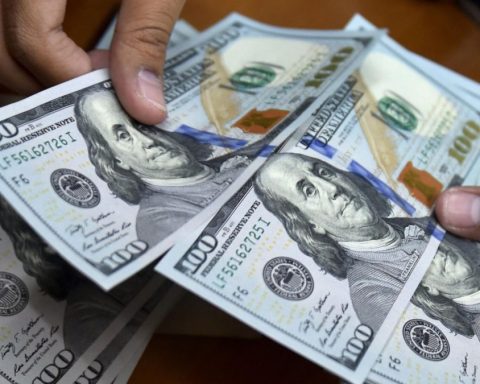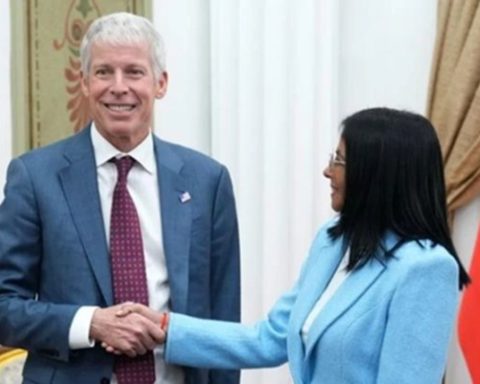The Minister of Economy of Argentina, Martín Guzmán, gave details this Friday of the agreement reached by the Government with the International Monetary Fund (IMF) to refinance the debt of US$ 45,000 million that it has with the organism.
In a press conference, Guzmán maintained that what the Government proposed, throughout the course of the negotiations, was “to have the support to be able to refinance that debt without undermining Argentina’s development possibilities” and explained that the agreement basically consists of four blocks: a fiscal one, a monetary and financial one, a third on inflation and, lastly, foreign and exchange policy.
Fiscal objectives in the agreement with the IMF
Regarding the fiscal bloc, Guzmán pointed out that “the agreement was to be able to have a fiscal path that does not inhibit growth“, so “the State is going to be able have a moderately expansive role with spending growing moderately in real terms, that is, without adjustment policies”.
“At the same time,” he added, “a gradual reduction of the fiscal deficit on the basis of a recovering economy”. The stated objective is for the deficit to be 2.5% in 2022, 1.8% in 2023 and 0% in 2024.
According to Guzmán, “there will be a greater targeting of State resources and an expansion of public investment and the law of science and technology will be respected.”
The minister said that “in order to aim for this gradual reduction of the fiscal deficit, work will be done to strengthen the tax administration, seeking to reduce evasion.”
The monetary and financial agreement with the fund
As for the monetary and financial bloc, “there is going to be a gradual but determined reduction of monetary assistance from the Central Bank to the Treasury. In 2021, monetary financing ended at 3.5 points of GDP. It is pointed out that in 2022 it will be 1% of the product, in 2023 0.6 of the GDP and that in 2024 it will be close to 0 to converge to a situation in which there is no more automatic financing from the BCRA to the Treasury.
In parallel, he signed up for a “positive real interest rate structure for strengthen the demand for assets in our currency and contribute to exchange and financial stability”.
Also “work will continue on the reconstruction of the public debt market in local currency.” “Today the national government has the capacity to have net financing in our currency and we are going to continue deepening that process that has already put us in more positive conditions in the negotiations,” Guzmán said.
Inflation: price agreements continue
The third block is the block of the inflation. “A comprehensive approach was agreed upon based on the premise that it is a multicausal phenomenon and you have to attack all the factors concurrently”.
“Secondly -he added-, the monetary fiscal scheme. We need to go improving the financing profile of public policy and strengthening the sustainability of public finances, reducing the monetary issue, and this occurs in the context of the gradual reduction of the fiscal deficit while the State plays a countercyclical role”.
In the same block, monetary policy comes in third place with positive real rates.
And, finally, regarding this point, “the coordinating role played by the State to anchor expectations (of inflation) in an Argentina that is still solving the macroeconomic inconsistencies that had been generated”. “For that, the role of price policies is essential: price agreements will play a central role“, ratified the minister, who affirmed that at the same time it will aim to improve the real salary of workers “so that aggregate demand can be strengthened and that contributes to giving stability to growth.”
Dollar: without exchange jumps and with regulations
The fourth block is “the foreign exchange policy block”, in which the minister highlighted that “there will be no exchange rate jump and sets a goal of accumulation of reserves which is very important to strengthen resilience on the external front”.
“A growth goal for this year of US$ 5,000 million is set. There will still be regulations in the financial account that prevent Argentina from going through a situation of instability, while pointing to a horizon of macroprudential regulations that discourage the inflow and outflow of speculative capital and investment in the real economy is facilitated,” he added.
Criticism of Macri’s agreement with the IMF
The minister questioned in general terms the previous agreements. And in particular the results achieved by the government of Mauricio Macri, with which, he said, “all the social and economic indicators deteriorated and the Fund itself recognized that the program failed, it did not achieve any of the stated objectives, the money was used to finance capital outflows and pay off debt that was in an unsustainable situation and left us in a really tough situation with a crushing debt load.
Regarding this new agreement with the IMF, he was in charge of emphasizing that there will be no labor reform, privatization or pension adjustments, but that “measures that support growth will be promoted”, that allow “deepen the development of the capital market and that there be more financing in our currency”, that “favor the development of sectors that can generate foreign currency” and that promote “more industrial and technological development”.
“This agreement -he declared- is going to allow growth to continue in Argentina and economic and social objectives can be addressed. The best agreement that could be achieved was reached”.
New loan from the fund
Guzman noted that “The program will have a duration of 2 and a half years” and also stressed that “there is still work to be done on the memorandums, which will take a few weeks and will be built” on the basis of the agreement announced this Friday.
An important fact: the minister announced that the agreement includes “financing in an amount equivalent to the agreement stand-by from the previous government, that is, around US$ 44.5 billion”, which implies “everything that remains to expire until the end” of the current agreement “plus the amount of the amortizations that were paid with the Special Drawing Rights” the year last.
“Every three months, as it always works, there will be reviews and in each review there will be disbursements (from the Fund) with which the payments of the previous agreement will be made and the remainder will be used to accumulate reserves,” he said.
The minister gave the press conference together with the chief of staff, Juan Manzur. “We all know what this debt represented: what the government of former president Mauricio Macri did, which irresponsibly indebted Argentina, was a tragedy for the country, cutting it off from a better future. This was a sword of Damocles, a sword to the neck,” said the official, almost reiterating what President Alberto Fernández had said shortly before.
Alberto Fernández’s announcement of the agreement with the IMF
Previously, the government released a recorded message in which the president Alberto Fernandez announced the “understandings“with the International Monetary Fund, to which Argentina owes pay him today US$ 731 million.
“This agreement does not contemplate restrictions” or “fall in real spending”assured the president, who also announced that the country will be able to access new financing. “This agreement does not condition us, we will be able to act by exercising our sovereignty,” he insisted.
“We had an unpayable debt that left us without a present or a future and now we have a reasonable agreement that will allow us to grow and fulfill our obligations. I have faith in Argentina, I know that we are able to get up and move forward“added Alberto Fernández in his message.
The agreement with the IMF will go through Congress, as announced by the president who at the same time, in a message to the opposition, said he trusted its approval.
The Chronicler – RIPE
